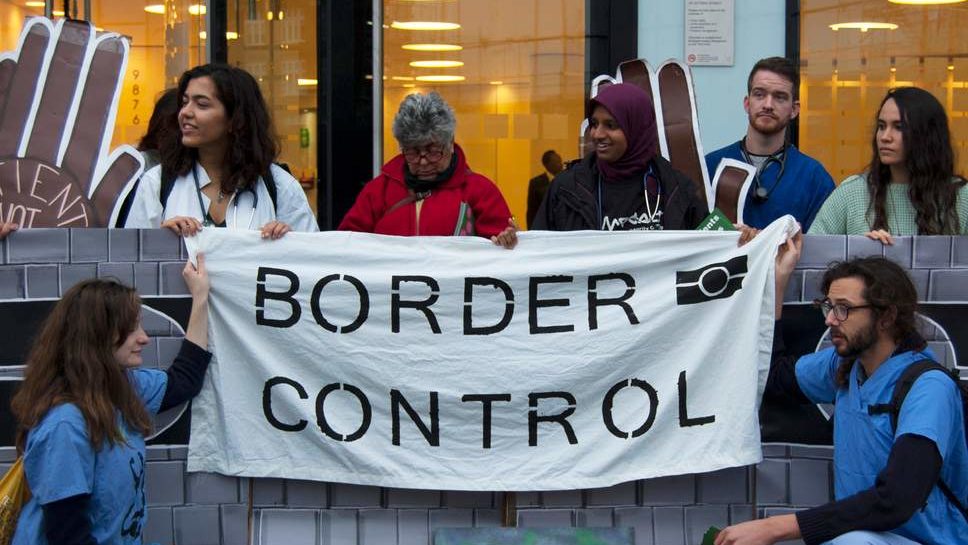The number of migrant workers dependent on visa in the United Kingdom reached record levels in 2023. The total number of work visas in 2023 increased by over 25% compared to the previous year, and visas in the health and care sector accounted for 91% of that jump. Overall, more than 140,000 visas were issued to health and care workers, of which more than 89,000 were granted to care workers and home carers.
These numbers are a clear reflection of the ongoing health workforce crisis ravaging the British health system. Accumulated cuts to National Health Service (NHS) funding, rising costs of living, and unrelenting privatization trends are making it more difficult to retain workers in this field. Unwilling to allocate adequate support for strengthening the NHS, Prime Minister Rishi Sunak’s government has instead continued to rely on workers from the Global South while simultaneously scheming to make their lives in the UK even more difficult by introducing increasingly harsh immigration policies.
Watch: “The British policy on immigration is the most harsh of our lifetimes”
Last year, the UK recruited more than 18,000 care workers from India and Nigeria each, as well as 15,000 from Zimbabwe. While India is currently not on the World Health Organization’s (WHO) list of countries suffering from major shortages of staff, Nigeria and Zimbabwe are. This should mean that international recruitment from these destinations is cut short. The UK, in fact, formally discourages active recruitment from the countries on WHO’s safeguards list – but the numbers reported by the Home Office show that, in practice, things are much different.
The migration of thousands of health and care workers represents a blow to the countries of origin, which are generally facing significantly worse health workforce scenarios than the UK. The migrant workers themselves are put at risk by the practices currently in place, as the UK’s care sector has been singled out as particularly at risk from labor abuses. Throughout last year, trade unions and media organizations reported on dozens of cases where migrant care workers were exploited and harassed by their employers, on whom their visa is dependent.
The trade union UNISON, organizing workers in public services, collected testimonies from health workers who were forced to pay over £15,000 to obtain placements, as well as live in inappropriate housing, sharing rooms and, sometimes, even beds.
Unfortunately, the harassment continues at the systemic level, as the government announced it would introduce a ban on family members’ visas. These visas, which allow spouses and children to accompany workers to the UK, are not only important for emotional and mental health reasons, but also because they allow the workers to make ends meet as their family members find jobs.
Watch: British nurses are struggling to save NHS from privatization
While health and care worker migration might seem like a neat short-term strategy for dealing with the chronic shortage of workers in the UK, researchers have warned that this is unlikely to lead to long-term improvements. “High demand for overseas care workers is driven in large part by severe funding difficulties in the sector, which have led to poor pay and conditions and difficulty attracting local workers,” Madeleine Sumption, director of the Migration Observatory at the University of Oxford, said already in mid-2023.
As the government continues to threaten further crackdowns on immigration while simultaneously relying on a migrant workforce to sustain essential services, NHS staff continue to struggle with high stress at work and inadequate pay. While some groups of health workers have accepted offers brought forward by the government, others, like junior doctors, insist that the Ministry of Health and the Treasury must do much more to ensure dignified income and life for those employed in the sector.
People’s Health Dispatch is a fortnightly bulletin published by the People’s Health Movement and Peoples Dispatch. For more articles and to subscribe to People’s Health Dispatch, click here.





